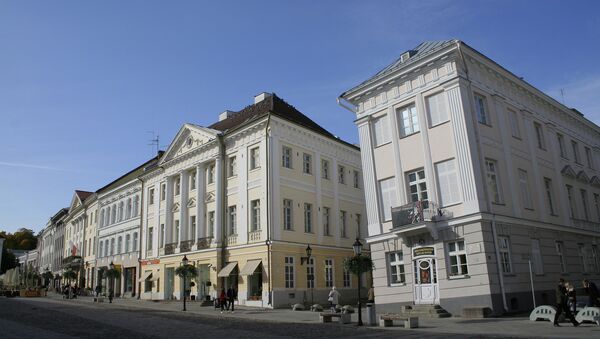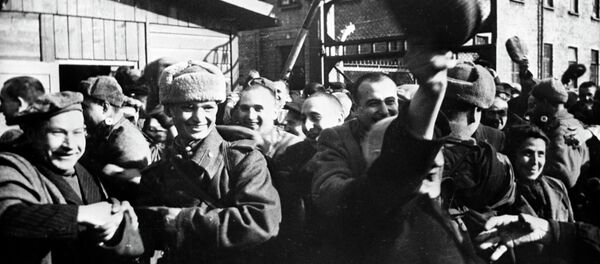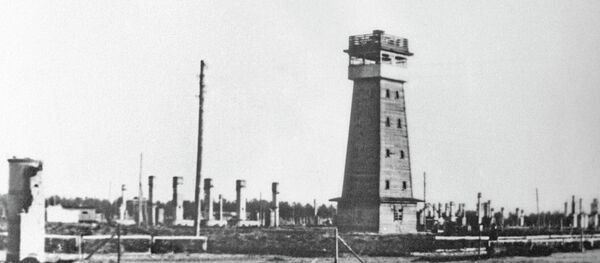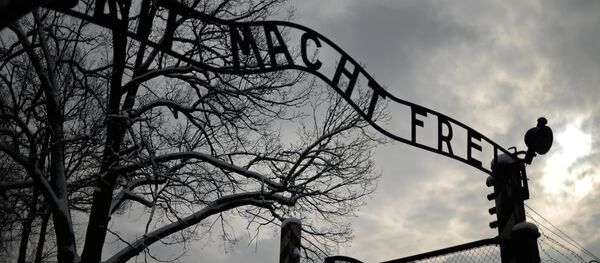A piece of film art by the artist features naked people happily playing tag in the gas chambers of Auschwitz. Another shows what appears to be a former inmate of the infamous concentration camp deciding to update the serial number tattoo on his wrist.
A painting at the opening of the exhibit features people in a car driving in what appears to be Hollywood, but the iconic white letters of the 'Hollywood' sign are replaced with the word 'Holocaust.' The Estonian Academy of Arts features a black and white photo advertising the event meant to resemble the famous images of concentration camp survivors behind barbed wire, except featuring mostly smiling, happy, well-fed people.
Tartu Art Museum curator Raelya Artelya notes that "living in the modern world, we have to ask ourselves not about whether we should talk about concentration camps, but how we should talk about them. How can we deal with the memory of unpleasant moments in history without forgetting them?"
The exhibition, opening on Saturday and running until the end of March, has already led to an outcry among local residents, including from Tartu's Jewish community. "There is nothing fun or ironic about the Holocaust," said community member Roman Smushkin, as quoted by Russia's RIA Novosti. "This is a tragic topic. Humor does not belong here," he said.
The Polish artists featured in the exhibition have previously participated in the Venice Biennale contemporary art exhibition.






